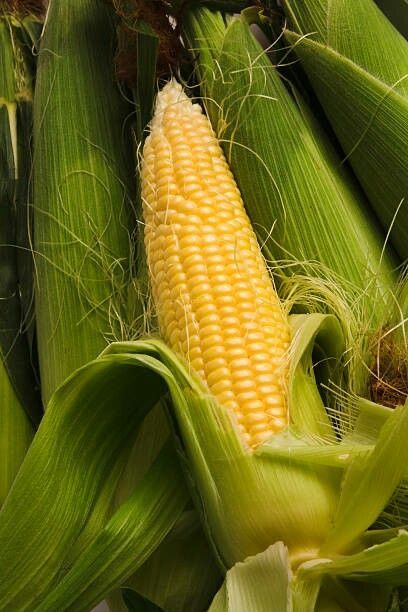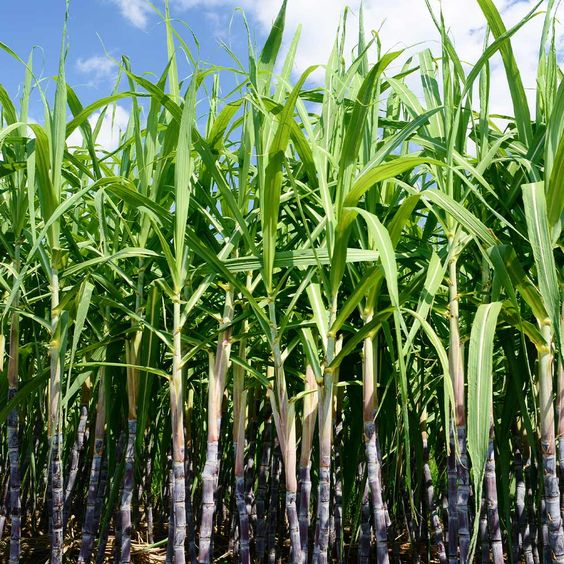Achieving Consistent Corn Quality through Smart Agriculture
Consistent Corn Quality, a staple crop globally, demands consistent quality for optimal yield, processing efficiency, and market value. Traditional agricultural practices often face challenges in maintaining uniform crop quality due to various factors such as soil variability, weather conditions, pests, and diseases. The advent of smart agriculture offers innovative solutions to address these challenges and ensure consistent corn quality. By integrating advanced technologies and data-driven approaches, farmers can optimize crop management practices, enhance yield, and produce corn that meets the highest standards.
Contents
- 1 the Importance of Consistent Corn Quality
- 2 Smart Agriculture Technologies for Consistent Corn Quality
- 3 Benefits of Smart Agriculture for Consistent Corn Quality
- 4 Explanation of Smart Agriculture Practices for Corn Quality
- 5 Challenges and Solutions in Implementing Smart Agriculture
- 6 Future Trends in Smart Agriculture for Corn Quality
- 7 Recommendations for Implementing Smart Agriculture for Corn Quality
the Importance of Consistent Corn Quality
Consistent corn quality is paramount for several reasons:
- Increased Yield: High-quality corn plants exhibit better growth, nutrient uptake, and resistance to diseases, leading to higher yields.
- Improved Market Value: Uniform corn with desirable characteristics commands premium prices in the market.
- Efficient Processing: Consistent quality corn facilitates smooth processing, reduces waste, and improves product quality.
- Enhanced Food Safety: Uniform corn is less prone to contamination and ensures food safety standards are met.
Smart Agriculture Technologies for Consistent Corn Quality
Several smart agriculture technologies can be employed to achieve consistent corn quality:
Precision Agriculture
- Soil Mapping and Analysis: Detailed soil analysis helps identify nutrient deficiencies and soil variability, enabling targeted fertilization and lime application.
- Variable Rate Technology (VRT): Precise application of inputs such as seeds, fertilizers, and pesticides based on soil conditions and crop requirements.
- Real-Time Crop Monitoring: Sensors and drones provide real-time data on crop health, growth stages, and stress factors, allowing for timely interventions.
Data Analytics and Modeling
- Predictive Analytics: Analyzing historical data and weather patterns to predict crop performance and optimize planting and harvesting schedules.
- Yield Mapping: Creating detailed maps of yield variations across fields to identify areas with high and low productivity.
- Crop Modeling: Simulating crop growth and development under different environmental conditions to optimize management practices.
Automation and Robotics
- Autonomous Tractors and Equipment: Reducing labor costs and improving efficiency while ensuring consistent operations.
- Crop Scouting Robots: Identifying pests, diseases, and nutrient deficiencies at an early stage for timely action.
- Harvesting Automation: Precise and efficient harvesting to minimize crop damage and maintain quality.
Internet of Things (IoT)
- Sensor Networks: Monitoring soil moisture, temperature, and other environmental factors to optimize irrigation and fertilization.
- Crop Monitoring Sensors: Real-time data on crop growth, stress, and disease for early detection and intervention.
- Equipment Monitoring: Tracking machinery performance and maintenance needs for optimal utilization.
Machine Learning
- Image Analysis: Identifying plant diseases and pests through image recognition and computer vision.
- Yield Prediction: Using AI algorithms to predict yield based on various factors such as weather, soil, and crop management practices.
- Crop Optimization: Recommending optimal planting dates, crop varieties, and management practices based on data analysis.
Benefits of Smart Agriculture for Consistent Corn Quality
- Improved Crop Uniformity: By addressing soil variability and providing precise inputs, smart agriculture promotes consistent crop growth and development.
- Enhanced Yield: Optimized crop management practices and early detection of problems lead to higher yields and better-quality corn.
- Reduced Costs: Efficient use of resources, such as water, fertilizers, and pesticides, reduces production costs.
- Environmental Sustainability: Precision agriculture minimizes environmental impact by reducing chemical inputs and optimizing resource use.
- Increased Profitability: Higher yields, improved quality, and reduced costs contribute to increased profitability for farmers.
Objectives of Implementing Smart Agriculture for Corn Quality
- To achieve consistent corn quality across different fields and growing seasons.
- To optimize crop management practices for maximum yield and quality.
- To reduce production costs through efficient resource utilization.
- To enhance environmental sustainability by minimizing chemical inputs.
- To improve the overall profitability of corn production.
Explanation of Smart Agriculture Practices for Corn Quality
- Soil Sampling and Analysis: Collecting soil samples from different areas of the field to assess nutrient levels, pH, and other properties.
- Precision Planting: Planting seeds at the optimal depth and spacing using VRT technology.
- Nutrient Management: Applying fertilizers based on soil test results and crop needs, using VRT for precise application.
- Irrigation Management: Using soil moisture sensors and weather data to optimize irrigation scheduling.
- Pest and Disease Control: Employing integrated pest management strategies, including biological control agents and targeted pesticide applications.
- Harvest Optimization: Determining optimal harvest timing based on crop maturity and market conditions.
- Data Analysis and Decision Making: Using data analytics to identify trends, optimize practices, and make informed decisions.
Challenges and Solutions in Implementing Smart Agriculture
Consistent Corn Quality,While smart agriculture offers immense potential for improving corn quality, several challenges need to be addressed:
- High Initial Investment: The cost of implementing smart agriculture technologies can be substantial for many farmers.
- Data Management and Analysis: Effective utilization of large amounts of data requires specialized skills and expertise.
- Infrastructure and Connectivity: Reliable internet connectivity and power supply are essential for smart agriculture systems.
- Human Resources: Farmers and agricultural workers need to acquire new skills to operate and manage smart agriculture technologies.
To overcome these challenges, governments, research institutions, and private companies can collaborate to provide financial incentives, training programs, and affordable technology solutions. Additionally, developing open-source platforms and data sharing initiatives can facilitate knowledge exchange and reduce costs.
Future Trends in Smart Agriculture for Corn Quality
Consistent Corn Quality,The future of smart agriculture holds exciting possibilities for further enhancing corn quality:
- Advanced Robotics: Autonomous robots will perform various tasks, including planting, weeding, and harvesting with increased precision and efficiency.
- Drones and Remote Sensing: High-resolution drones and satellite imagery will provide even more detailed information about crop health and soil conditions.
- Digital Twins: Creating virtual replicas of corn fields will enable simulation and optimization of different management scenarios.
- Blockchain Technology: Ensuring the traceability and authenticity of corn products from farm to table.
Recommendations for Implementing Smart Agriculture for Corn Quality
Consistent Corn Quality,To maximize the benefits of smart agriculture for corn quality, farmers should consider the following recommendations:
- Conduct a thorough soil analysis to understand nutrient requirements and soil variability.
- Invest in high-quality sensors and data collection equipment.
- Utilize data analytics to identify patterns and optimize crop management practices.
- Collaborate with agricultural experts and technology providers.
- Continuously learn and adapt to new technologies and practices.
By adopting smart agriculture technologies and best practices, farmers can significantly improve corn quality, increase yields, and enhance the sustainability of their operations.




